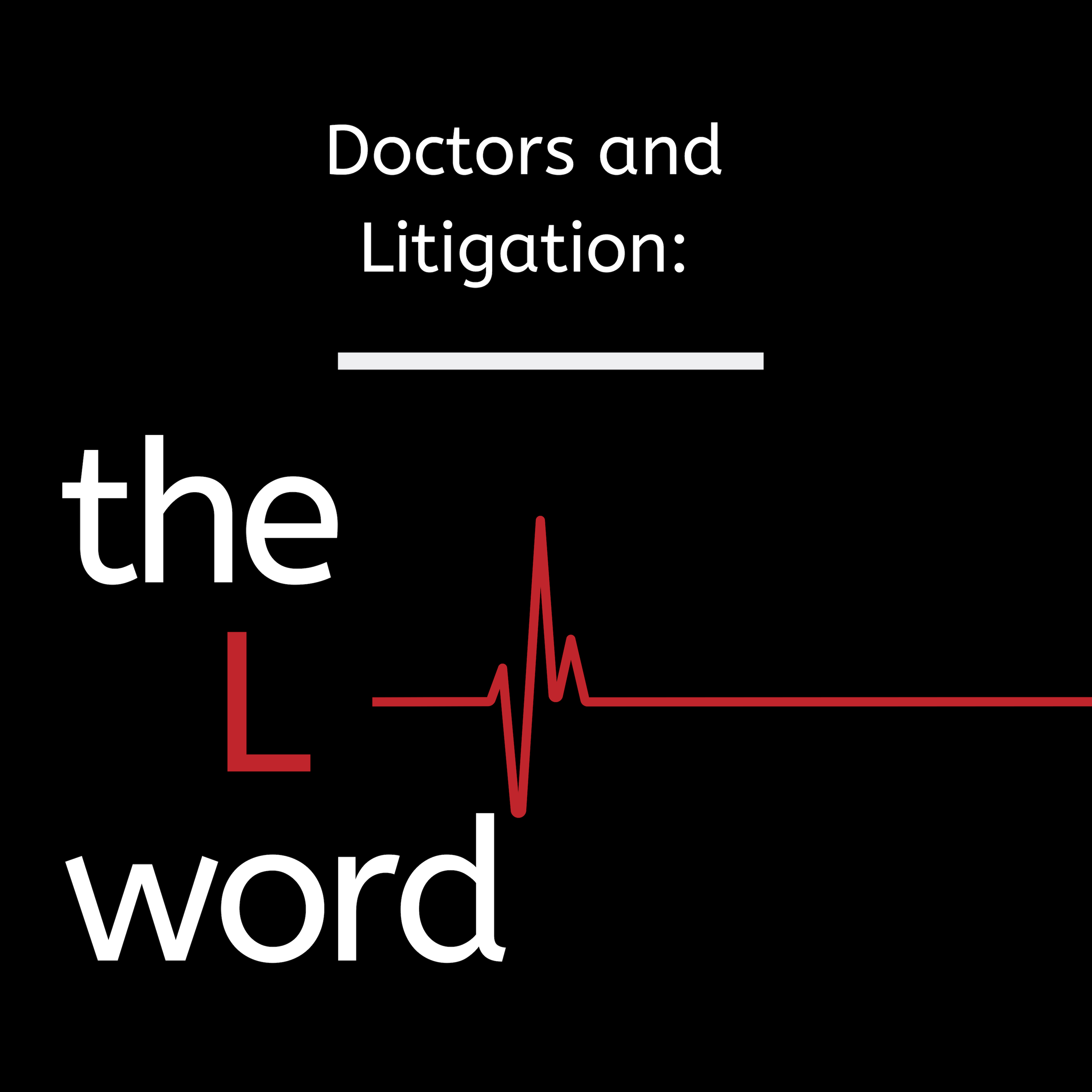D-Day: Preparing For Your Deposition
Description
In this episode, we discuss the need for emotional, psychological, and practical preparation for your deposition. We hear from experts such as defense attorney Ryan Deady (of Barton Gilman, LLP) as well as Dr. Ilene Brenner, author of 'How to Survive a Medical Malpractice Lawsuit.' As always, you'll hear from physicians about their experiences as well. (Note: this is not concrete legal advice -- you need your lawyer for that. This is meant as a general guide to the process and what you might expect, but just like in medicine, every legal case is unique.)
PRIOR TO DEPOSITION: In addition to obtaining books and discussing with your attorney, you may find these points helpful. This is not comprehensive, but it's a start.
1) Study your chart well, and any other documents provided to you by your attorney. 2) Discuss whether to do any research about the medicine in question with your attorney -- there are pros and cons to this. 3) Know the weak spots in your case and your charting, and how you will articulate your thoughts about them 4) Practice answering difficult questions in a direct and succinct manner, avoiding providing extraneous information. 5) Discuss with your attorney how to handle questions about co-defendants. In general, avoid finger-pointing. 6) Know your 'arrows' and when to fire them (i.e., if you have a 'slam dunk' in your defense)--this is the exception to the 'don't explain too much' strategy. Your attorney will help you identify these points and how to get them into your testimony. 7) Plan for the day itself: make sure you're not on call or post-overnight, know what sharp, professional outfit you will be wearing, know where to be and when -- and plan something fun and relaxing that evening to decompress after it's done.
DURING DEPOSITION: 1) Pay attention to your attorney during the process -- they are with you for a reason. 2) Take your time answering questions; pause before speaking. 3) Do not answer any question until the question is complete. Do not interrupt or speak to fill in an awkward pause. 4) If a question has multiple parts or is confusing, ask the questioning attorney to break it down or rephrase it. Do not answer questions unless you know exactly what the question is. If the question seems out of 'left field' avoid over-explaining why it seems to be so. If you cannot answer the question as it's asked, say so and ask them to rephrase it. 5) Be aware of verbal traps such as double negatives, hypotheticals, overly vague questions or generalizations, or questions posed after a long series of statements or data. 6) If you don't remember or don't know, just say you don't remember or you don't know. Don't guess, and don't say anything you only 'think' you remember. Stick to what you're sure of. 7) Do not agree to calling any text, journal or article "authoritative". It's not. 8) You should look at hard copies of the chart or labs when asked direct questions about them -- but then stop flipping through the chart and pay attention to the next question. Do not direct their attention to any other parts of the chart or try to educate them. 9) Take a break whenever you need one. Refresh, recharge, and speak with your attorney in private. It's a long day. 10) When it ends, get far away from the building and into a safe space before you talk to your attorney about what went on in there. You never know who's listening, and anything they observe is fair game, even if it's not in the transcript.
More Episodes
Published 10/28/24
Published 09/28/24
Published 08/25/24


